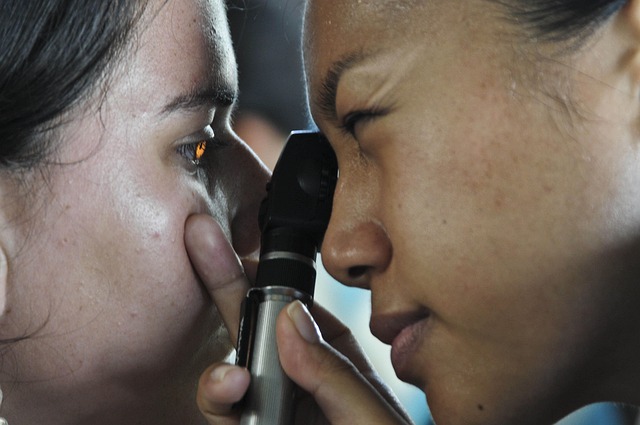Recognizing Warning Signs That May Lead to a Neurological Diagnosis
Explore the common warning signs that could indicate underlying neurological issues. From subtle changes in behavior to more pronounced symptoms, early recognition is key to effective diagnosis and management. Stay informed and learn what signs to look out for to prioritize your neurological health.

What Are Common Neurological Warning Signs?
The human nervous system controls virtually every function in the body, making neurological symptoms remarkably diverse. Common warning signs that may indicate a neurological condition include persistent headaches that differ from typical headache patterns, unexplained dizziness or balance problems, and sudden changes in coordination. Memory issues, confusion, or difficulty concentrating can also signal neurological concerns, particularly when these symptoms appear suddenly or progressively worsen over time.
Physical symptoms such as muscle weakness, numbness, or tingling sensations in the extremities often prompt neurological evaluations. Changes in vision, including double vision, blurred vision, or partial vision loss, can indicate serious neurological conditions requiring immediate medical attention. Speech difficulties, including slurred speech or difficulty finding words, represent another category of warning signs that healthcare providers take seriously during neurological assessments.
How Does Early Detection Impact Treatment Outcomes?
Early detection of neurological conditions significantly improves treatment outcomes and quality of life for patients. When neurological disorders are identified in their initial stages, healthcare providers can implement interventions that may slow disease progression, manage symptoms more effectively, and prevent complications. For conditions like stroke, where time is critical, recognizing warning signs and seeking immediate medical attention can mean the difference between full recovery and permanent disability.
The field of neurology has advanced considerably, offering various treatment options that work best when implemented early in the disease process. Medications, physical therapy, occupational therapy, and lifestyle modifications can be more effective when started before significant neurological damage occurs. Additionally, early diagnosis allows patients and families to plan appropriately, access support resources, and make informed decisions about their healthcare journey.
What Symptoms Require Immediate Medical Attention?
Certain neurological symptoms constitute medical emergencies and require immediate professional evaluation. Sudden, severe headaches that patients describe as “the worst headache of their life” can indicate serious conditions such as brain hemorrhage or aneurysm. Rapid onset of weakness or paralysis, particularly on one side of the body, may signal stroke and requires emergency intervention within hours for optimal outcomes.
Seizures, especially in individuals without a history of epilepsy, warrant immediate medical evaluation. Loss of consciousness, severe confusion, or disorientation that develops suddenly should prompt emergency medical care. Changes in mental status, including sudden personality changes or severe agitation, can indicate serious neurological conditions requiring urgent assessment by healthcare professionals.
When Should You Consult a Neurological Specialist?
Primary care physicians often serve as the first point of contact for patients experiencing neurological symptoms, but certain situations warrant consultation with a neurology specialist. Persistent symptoms that don’t respond to initial treatments, progressive neurological symptoms that worsen over time, or complex symptom patterns that suggest specific neurological conditions typically require specialized evaluation.
Patients experiencing recurrent headaches with changing patterns, movement disorders such as tremors or involuntary muscle movements, or cognitive changes that interfere with daily functioning should consider neurological consultation. Sleep disorders, particularly those involving abnormal movements or behaviors during sleep, may also benefit from specialized neurological assessment and treatment planning.
How Can You Prepare for a Neurological Diagnosis Process?
Preparing for a neurological evaluation helps ensure accurate diagnosis and appropriate treatment recommendations. Keeping detailed records of symptoms, including when they occur, their duration, and any triggering factors, provides valuable information for healthcare providers. Documenting family medical history, particularly any neurological conditions among relatives, can offer important diagnostic clues.
Patients should compile lists of current medications, supplements, and any previous medical treatments or procedures. Bringing along a trusted family member or friend to appointments can be helpful, as they may provide additional observations about symptoms or help remember important information discussed during consultations. Understanding that neurological diagnoses often require multiple tests and appointments helps set realistic expectations for the diagnostic process.
| Healthcare Provider Type | Services Offered | Key Features |
|---|---|---|
| Primary Care Physician | Initial evaluation, basic testing | First-line assessment, referral coordination |
| Neurologist | Specialized diagnosis, treatment planning | Advanced testing, specialized treatments |
| Emergency Department | Urgent neurological symptoms | 24/7 availability, emergency interventions |
| Neurological Clinics | Comprehensive care, follow-up | Multidisciplinary teams, ongoing management |
The journey toward a neurological diagnosis can feel overwhelming, but understanding warning signs and knowing when to seek professional help empowers patients to advocate for their health. Modern neurology offers numerous diagnostic tools and treatment options that continue to improve outcomes for patients with neurological conditions. While not every symptom indicates a serious neurological disorder, being aware of potential warning signs and maintaining open communication with healthcare providers ensures that concerning symptoms receive appropriate attention and evaluation when necessary.
This article is for informational purposes only and should not be considered medical advice. Please consult a qualified healthcare professional for personalized guidance and treatment.




